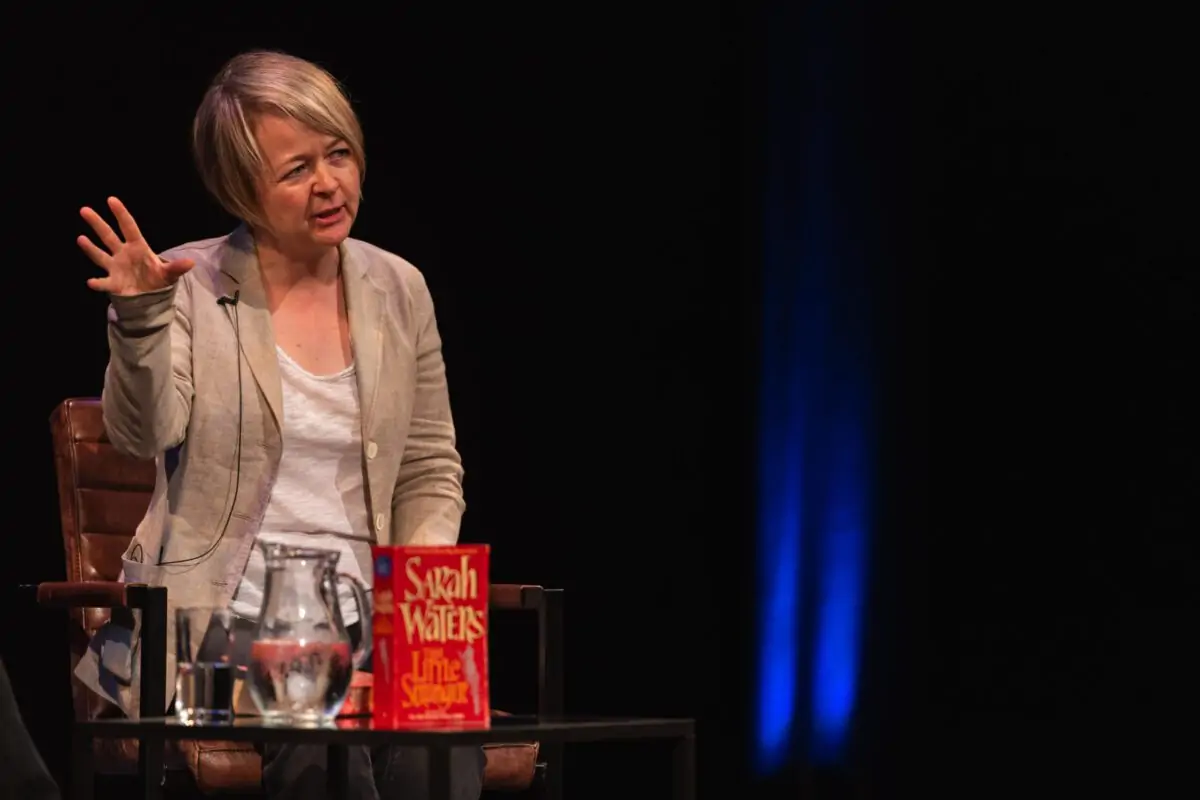INTERVIEW: Sarah Waters
Posted by

13th October, 2018
Gala Theatre
Interview by Julia Coyle
Sarah Waters
Following the release of the film adaptation of her novel The Little Stranger, Booker Prize shortlisted-author Sarah Waters was Durham Book Festival’s Big Read 2018.
Do you have to believe in the supernatural to write a gripping ghost story? Sarah Waters, author of novels such as Tipping The Velvet and Fingersmith, doesn’t think so. ‘You don’t need to believe … you need to understand the appeal of being frightened,’ she says. This ‘understanding’ drives the narrative of her ghost story, which focuses on the wealthy Ayres’ family through the upheaval of the class system in post-war Britain.
Faraday, a doctor of modest upbringing, is called to Hundreds Hall, a stately home falling to ruin after World War II. He is summoned to treat the maid, who dislikes the ghostly aspects of the house. Dr. Faraday observes the Ayres as they experience their house turning against them and their family unit falling apart. Could such horror be the result of a haunting by a little stranger?
Prior to her talk at the festival, I asked Waters a few questions about the film adaptation and her writing process. I was keen to understand the contrast between The Little Stranger and her earlier novels. If you have read any of her previous stories you will know that Waters often writes fiction dealing with LGBTQ issues; The Little Stranger is a departure from this style, with no overtly queer themes and a straight, male protagonist and narrator.
I asked Waters whether she found writing from a male perspective different from a female voice, and she advised that she found it relatively easy. ‘It took some getting used to, but very quickly I realised that I wasn’t questioning how a man would think in this situation, but rather how the character, Dr. Faraday, would respond.’
I was also intrigued by Waters’ impressions of the differences between the original book and the film adaptation. Waters explained that the film is certainly ‘a realistic translation of the book,’ with its gothic presence and eerie atmosphere. In the novel, many of the most compelling scenes take place offstage and are brought to the narrator’s attention via word–of–mouth. This would have been hard to achieve in a film without an abundance of flashbacks but, as Waters commented, ‘the writer and director achieved this spooky atmosphere in other ways’.
Sarah went on to describe how her love for horror and ghost stories as a child has helped shape the gothic genre to which all of her novels aspire. Waters revealed that her book being adapted into a horror movie has given her a tremendous amount of satisfaction, as it was this film genre which captivated her most as a young girl.
Were the actors in the film how she had imagined the characters when she wrote The Little Stranger? She replied that they weren’t originally, but that the actors have replicated the characters’ traits through their skill. Following our interview, however, she told the Big Read audience at Durham’s Gala Theatre that she has a sense of detachment from characters, and that she doesn’t tend to hold on to the memory of them when completing a novel.
So, to return to the question at the beginning of the article: do you have to believe in the supernatural to write a gripping ghost story? In my opinion, although you do not need to believe, you must have the skill to compel with your words – a talent which Sarah Waters has in abundance.
This work was produced by participants on our Durham Book Festival Reviewers in Residence programme, a cultural journalism programme run by New Writing North Young Writers. Reviewers in Residence gives aspiring journalists aged 15-23 the chance to review books, attend events and interview authors at the Durham Book Festival. For more information about New Writing North Young Writers visit the New Writing North website.


